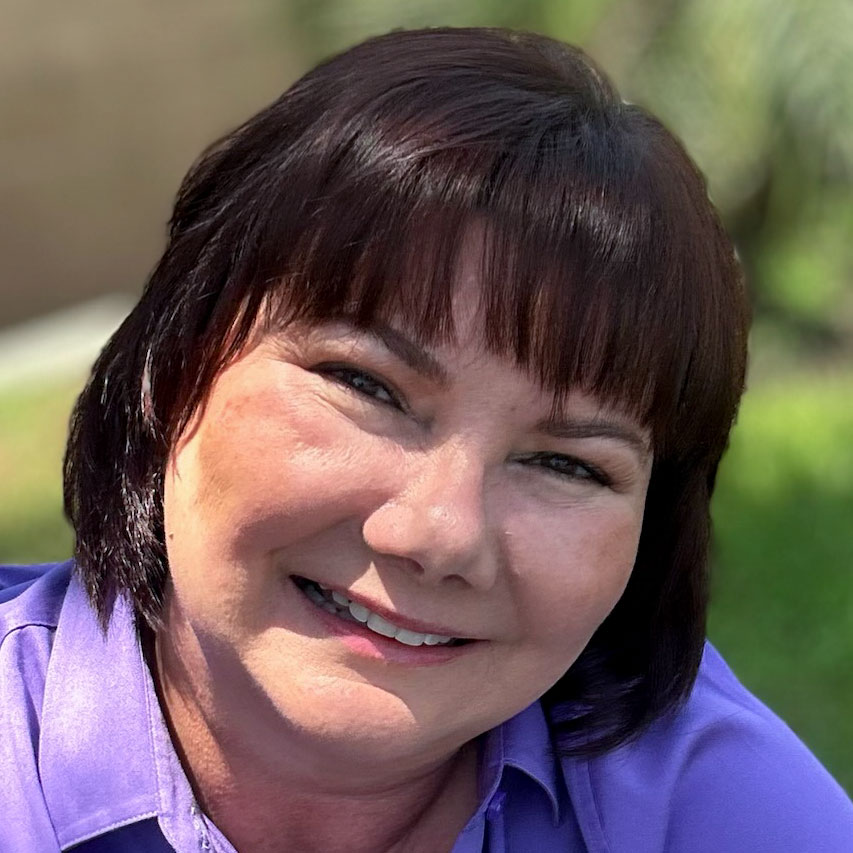Why does sleep matter?
Sleep is more than a nightly routine—it’s a biological necessity. While you sleep, your body restores muscles, balances hormones, strengthens immunity, and consolidates memories. Without enough rest, your brain and body can't function optimally.
Lack of sleep has been linked to:
- Impaired memory and concentration
- Increased risk of anxiety and depression
- Weakened immune system
- High blood pressure and heart disease
- Weight gain and metabolic issues
- Reduced ability to manage stress
Chronic sleep deprivation doesn’t just make you tired—it increases your risk of serious health problems. Working with a sleep therapist can help identify what’s disrupting your rest and give you tools to fix it.
What are common sleep problems?
Sleep issues are incredibly common, but they vary in severity and cause. Some of the most frequent sleep disorders include:
- Insomnia: Difficulty falling asleep, staying asleep, or waking too early. Insomnia may be short-term (acute) or persist for months or years (chronic)
- Sleep apnea: A condition in which breathing repeatedly stops and starts during sleep, often leading to loud snoring and fatigue
- Restless legs syndrome (RLS): An uncontrollable urge to move the legs, often worse at night
- Narcolepsy: A chronic disorder that causes overwhelming daytime drowsiness and sudden sleep attacks
- Delayed sleep phase syndrome: A circadian rhythm disorder in which your internal clock is out of sync with conventional sleep/wake times.
A sleep psychologist or insomnia therapist can help you determine what type of sleep issue you’re experiencing and guide you toward an effective solution.
How do I know if I have sleep problems?
Sleep disorders don’t always show up as dramatic insomnia. Many people experience sleep issues without realizing they’re treatable. Here are common signs that you might be dealing with a sleep problem:
Signs and Symptoms:
- Taking more than 30 minutes to fall asleep
- Waking up frequently during the night
- Feeling exhausted even after 7–8 hours of sleep
- Relying on caffeine or naps to get through the day
- Waking up too early and unable to go back to sleep
- Feeling anxious or frustrated around bedtime
- Loud snoring or gasping for air during sleep
- Falling asleep during quiet activities like reading or watching TV
How Sleep Problems Are Diagnosed:
- Clinical interview: A sleep therapist will ask about your sleep patterns, lifestyle, stress levels, and medical history.
- Sleep diary: You may be asked to track your sleep-wake habits for 1–2 weeks.
- Sleep studies: In some cases, you may undergo a polysomnography (overnight sleep test) to monitor brain waves, oxygen levels, heart rate, and breathing.
If these symptoms sound familiar, a licensed sleep therapist or insomnia specialist can help identify underlying causes and create a personalized treatment plan.
What affects sleep quality?
Several internal and external factors can disrupt your sleep. Some of the most common include:
- Stress and anxiety: Racing thoughts, worry, or unresolved stress can keep your nervous system on high alert at night
- Screen time: Exposure to blue light from phones or computers delays the release of melatonin, your body’s natural sleep hormone
- Irregular schedules: Shifting bedtimes, late-night work, or travel can confuse your circadian rhythm
- Poor sleep environment: Noisy, bright, or uncomfortable sleeping conditions can make it harder to stay asleep
- Caffeine, alcohol, or heavy meals: What you consume in the evening has a big impact on sleep onset and depth
- Medical conditions: Chronic pain, acid reflux, thyroid disorders, and mental health conditions like depression or PTSD can all affect sleep quality.
A sleep psychologist can help you identify patterns and triggers that may be affecting your rest—and give you the tools to address them.
Tips for better sleep
Sleep hygiene refers to healthy habits that promote restful, uninterrupted sleep. These small changes can have a big impact over time:
Stick to a Consistent Schedule
Go to bed and wake up at the same time every day—even on weekends. A consistent routine helps train your body to fall asleep more easily.
Create a Relaxing Wind-Down Routine
Spend 30–60 minutes before bed doing calming activities: reading, gentle stretching, or taking a warm bath. Avoid stimulating tasks like work or intense exercise.
Limit Screen Time
Avoid screens (phones, tablets, TVs) at least one hour before bed. Blue light disrupts melatonin production and delays sleep.
Optimize Your Sleep Environment
Keep your bedroom cool, quiet, and dark. Consider blackout curtains, white noise machines, or a weighted blanket for added comfort.
Avoid Stimulants
Caffeine and nicotine can linger in your system for hours. Avoid these substances at least 6–8 hours before bedtime.
Get Morning Sunlight
Exposure to natural light early in the day helps regulate your internal clock, making it easier to fall asleep at night.
Reserve the Bed for Sleep
Avoid using your bed for work, eating, or watching TV. This helps your brain associate bed with sleep only.
These techniques are often part of cognitive behavioral therapy for insomnia (CBT-I)—a leading, evidence-based approach used by insomnia therapists and sleep psychologists.
When do I seek help from a professional?
Occasional sleep trouble is normal. But if poor sleep starts to affect your mood, health, or ability to function, it’s time to get help. Consider seeing a sleep therapist if:
- Sleep problems occur 3 or more times a week for at least a month
- You feel chronically tired despite spending enough time in bed
- You rely on medication, alcohol, or other substances to fall asleep
- You feel anxious or panicked around bedtime
- Sleep issues are impacting your work, relationships, or mental health
A qualified insomnia specialist can help you uncover what's driving your sleep struggles and support you in reclaiming rest.
What treatments are available?
There are a range of effective treatments available for sleep disorders, depending on the type and severity. These include:
Cognitive Behavioral Therapy for Insomnia (CBT-I)
The gold standard for treating insomnia. CBT-I helps people change unhelpful thoughts and behaviors around sleep.
Mindfulness-Based Therapy
Helps reduce anxiety, promote relaxation, and support a healthy sleep routine.
Medication
Sleep aids (prescription or over-the-counter) may be used short-term, but they are not typically recommended for long-term use. Always consult with a doctor before using any sleep medication.
Chronotherapy
Adjusts sleep-wake cycles gradually for people with circadian rhythm disorders.
Sleep restriction therapy
A technique used to consolidate sleep by limiting time in bed, increasing sleep drive, and reducing wakefulness at night.
A licensed sleep therapist or insomnia specialist will tailor treatment to your individual needs and help you find the right approach.
Can mental health conditions affect sleep?
Yes. Mental health and sleep are closely linked. Conditions like anxiety, depression, PTSD, bipolar disorder, and ADHD can all interfere with sleep patterns. Conversely, poor sleep can worsen symptoms of these disorders, creating a vicious cycle.
For example:
- Anxiety may cause racing thoughts or nighttime panic attacks
- Depression can lead to hypersomnia (excessive sleep) or insomnia
- PTSD may cause nightmares or hypervigilance at night
A sleep psychologist is trained to address both the emotional and physiological causes of sleep disruption, often working in tandem with your mental health care provider.
Is snoring harmless?
Occasional snoring is usually benign, but loud, chronic snoring may be a sign of obstructive sleep apnea (OSA)—a condition where breathing repeatedly stops during sleep. OSA can increase your risk for heart disease, high blood pressure, and stroke.
If your snoring is accompanied by gasping, choking, or excessive daytime sleepiness, talk to a doctor or insomnia specialist about a sleep study.
Does napping during the day make up for poor sleep at night?
Short naps (10–30 minutes) can boost alertness, especially when you didn’t sleep well the night before. However, napping too long or too late in the day can disrupt your sleep cycle and make it harder to fall asleep at night.
Regular daytime fatigue is a sign that you’re not getting restorative sleep and may benefit from working with an insomnia therapist.
Can alcohol help me sleep better?
Alcohol might make you feel sleepy, but it actually disrupts sleep quality. It reduces REM sleep, increases the chances of waking during the night, and can worsen breathing problems. Over time, relying on alcohol for sleep can lead to dependence and worsen insomnia.
Does everyone need 8 hours of sleep?
Eight hours is a general guideline, but sleep needs vary. Some adults feel rested with 7 hours, while others need 9. The key is how you feel during the day. If you're alert, focused, and energetic without relying on caffeine, you're likely getting enough sleep.
Whether you’re struggling with insomnia, waking up exhausted, or just want to feel more rested, help is available. Find a qualified sleep therapist, connect with insomnia specialists, or consult a sleep psychologist who understands how to help you sleep better—naturally and sustainably.













